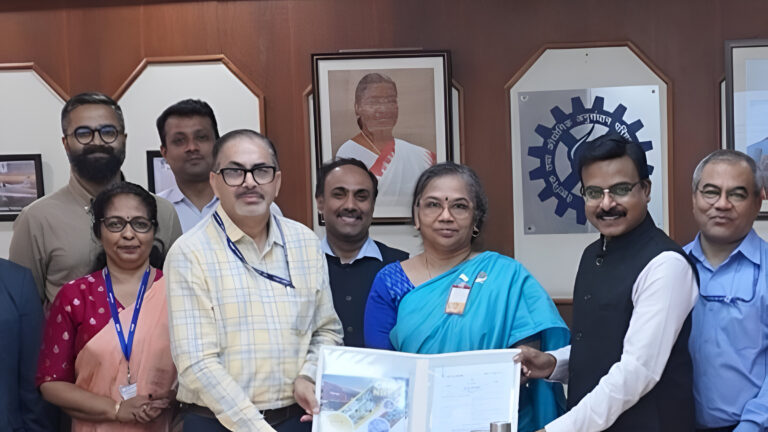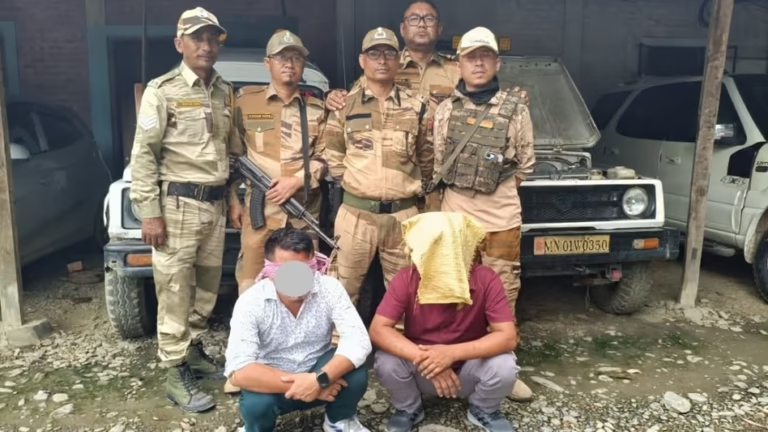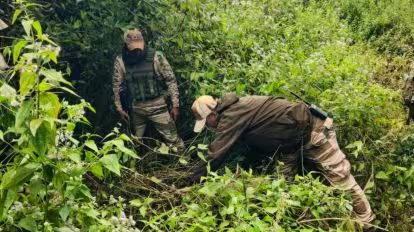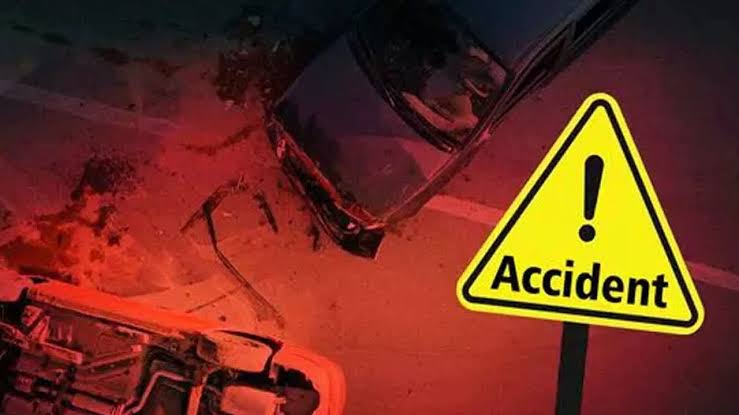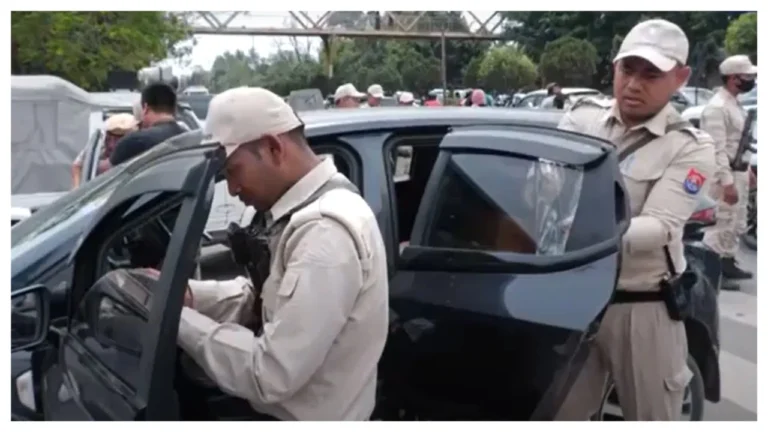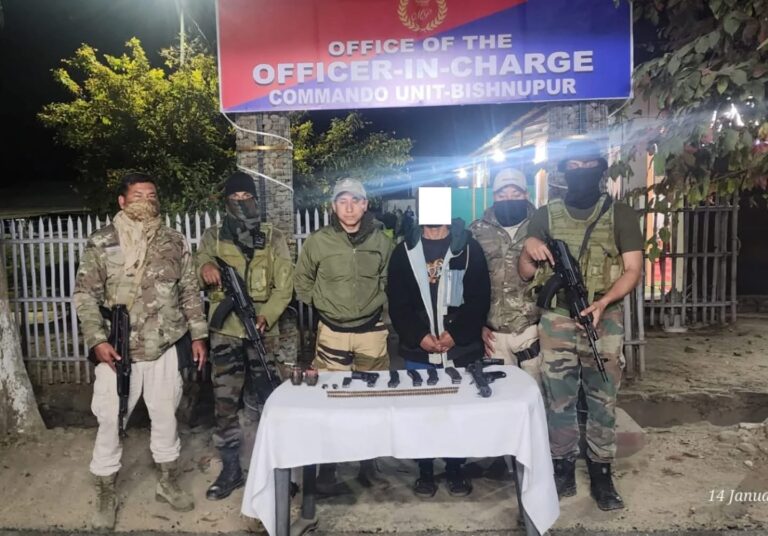Manipur CM Hails Himanta Biswa Sarma for Tough Measures Against Illegal Poppy Cultivation and Drugs
In a recent development, Manipur Chief Minister N. Biren Singh praised Assam Chief Minister Himanta Biswa Sarma for his decisive actions against illegal poppy cultivation and drug trafficking. Singh emphasized the importance of collaborative efforts between neighboring states to combat the drug menace threatening the youth of Northeast India.
The Growing Concern of Drug Trafficking in Northeast India
The picturesque landscapes of Northeast India, with its rolling hills and lush greenery, have long been overshadowed by the dark cloud of drug trafficking. This region, due to its proximity to the infamous “Golden Triangle”—the area where the borders of Thailand, Laos, and Myanmar converge—has become a vulnerable corridor for the transit of narcotics. The illicit drug trade not only undermines the socio-economic fabric of the region but also poses a significant threat to the health and future of its younger population.
Assam’s Bold Stance Against Illicit Activities
Under the leadership of Chief Minister Himanta Biswa Sarma, Assam has intensified its crackdown on illegal poppy cultivation and drug trafficking networks. A notable operation in Goalpara district led to the destruction of over 56 acres of illicit poppy fields, with an estimated market value of ₹27 crore. Sarma’s proactive approach sends a clear message to those involved in these unlawful activities: Assam will not tolerate the cultivation or distribution of illegal substances within its borders.
Manipur’s Commitment to a Drug-Free Society
Manipur, sharing borders with Myanmar, has its own set of challenges concerning drug trafficking. Chief Minister N. Biren Singh has been at the forefront of initiatives aimed at eradicating this menace. His administration has implemented stringent measures to curb the cultivation of poppy and has been actively involved in dismantling drug trafficking networks. Singh’s appreciation of Sarma’s efforts underscores the necessity for regional cooperation in addressing this pervasive issue.
The Power of Regional Collaboration
The drug trafficking problem is not confined to a single state; it transcends borders, affecting the entire Northeast region. Recognizing this, both Assam and Manipur have shown a willingness to collaborate, understanding that a united front is more effective in combating the drug menace. By sharing intelligence, resources, and strategies, these states aim to dismantle the networks that perpetuate drug trafficking and ensure a safer environment for their citizens.
Community Involvement: A Key Component
While governmental actions are crucial, the role of the community cannot be overstated. Public awareness campaigns, educational programs, and community policing initiatives play a vital role in preventing the spread of drug abuse. Empowering local communities to take charge and report suspicious activities can significantly aid in the early detection and prevention of drug-related incidents.
Looking Ahead: A Vision for a Drug-Free Northeast
The commendation exchanged between the Chief Ministers of Manipur and Assam is more than just a gesture; it symbolizes a shared vision for a drug-free Northeast. By continuing to implement stringent measures, fostering regional cooperation, and involving the community, there is hope that the region can overcome the challenges posed by drug trafficking. The journey ahead is arduous, but with unwavering commitment and collective effort, a brighter, drug-free future is within reach.
FAQs
- What prompted Manipur’s Chief Minister to praise his Assam counterpart?
- Manipur’s Chief Minister, N. Biren Singh, commended Assam’s Chief Minister, Himanta Biswa Sarma, for his decisive actions against illegal poppy cultivation and drug trafficking, highlighting the importance of regional cooperation in combating the drug menace.
- Why is the Northeast region particularly vulnerable to drug trafficking?
- The Northeast’s proximity to the “Golden Triangle,” a major global hub for opium production, makes it a susceptible corridor for drug transit, leading to increased challenges in controlling trafficking activities.
- What measures has Assam implemented to combat illegal poppy cultivation?
- Under Chief Minister Sarma’s leadership, Assam has intensified crackdowns on illegal poppy cultivation, exemplified by operations like the destruction of over 56 acres of illicit poppy fields in Goalpara district.
- How is Manipur addressing its drug-related challenges?
- Manipur, under Chief Minister Singh, has implemented stringent measures to curb poppy cultivation and dismantle drug trafficking networks, emphasizing the importance of a drug-free society.
- How can communities contribute to combating drug trafficking?
- Communities can play a pivotal role by participating in public awareness campaigns, educational programs, and community policing initiatives, thereby aiding in the early detection and prevention of drug-related activities.
